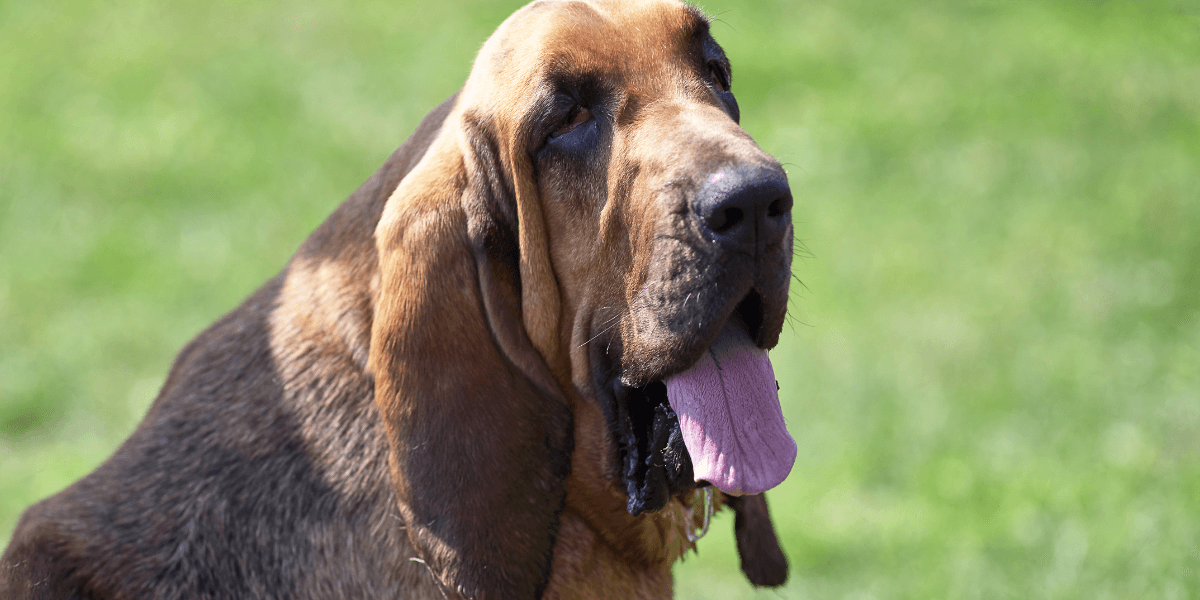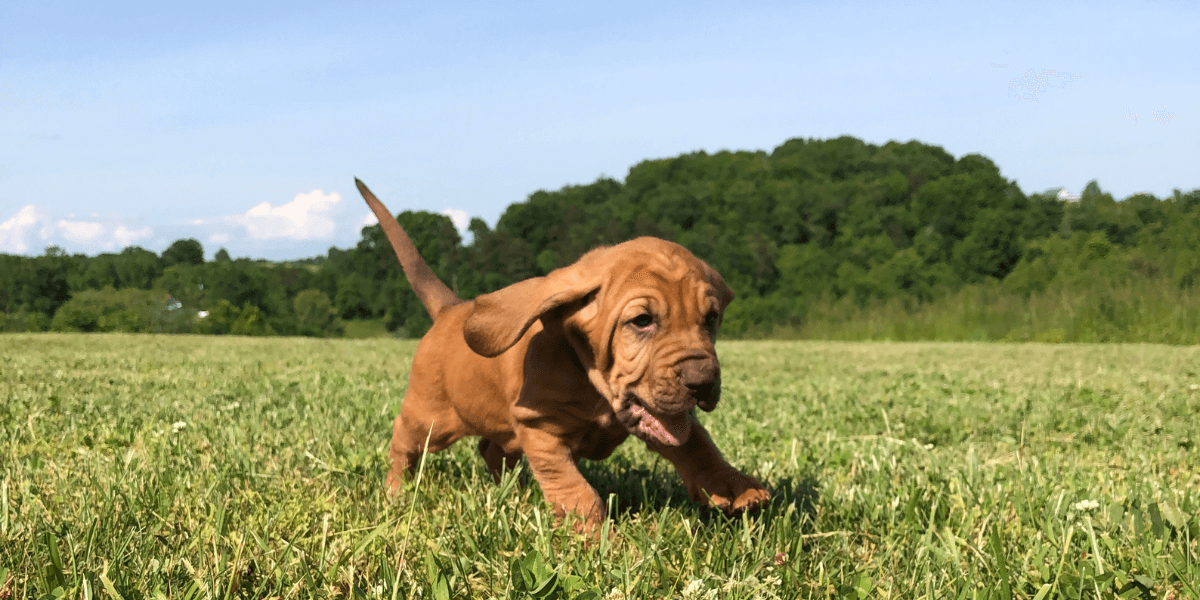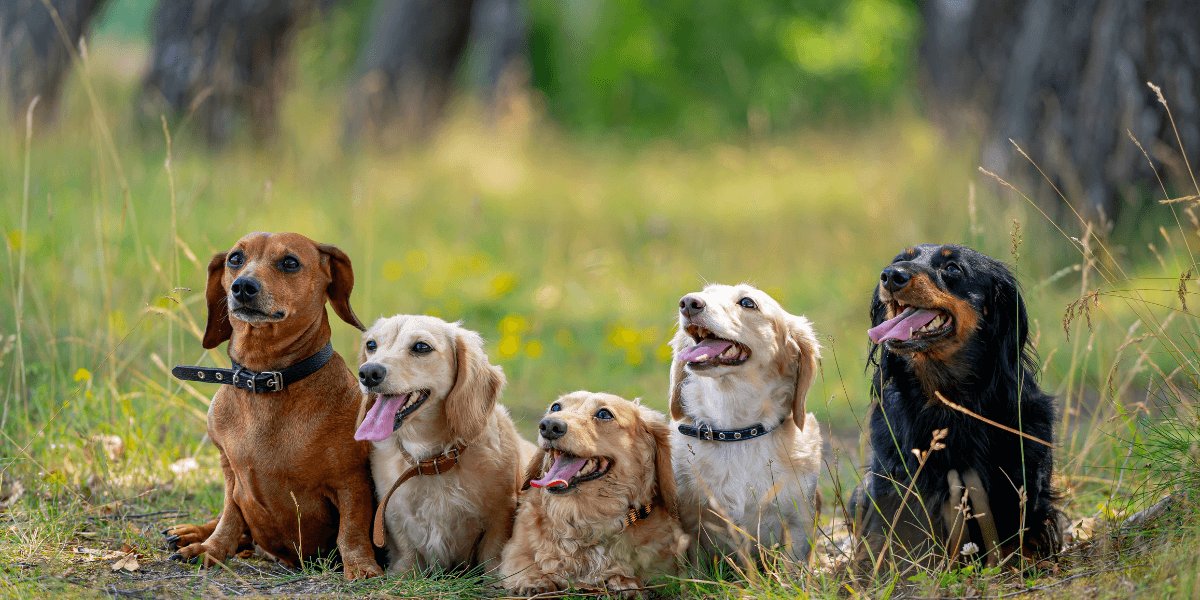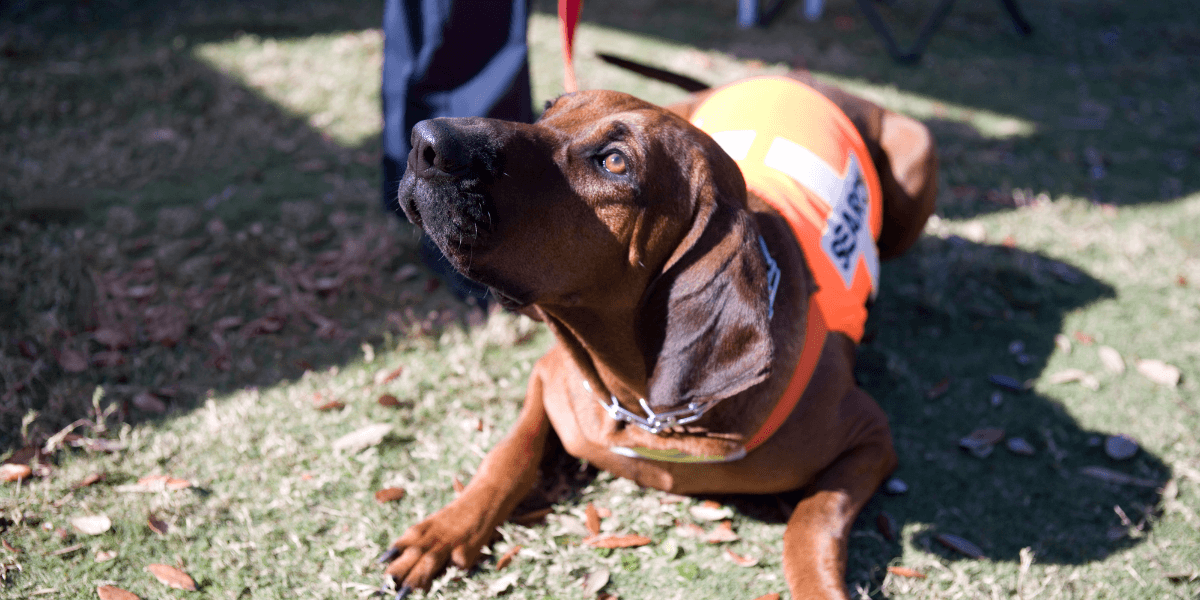Introduction
Bloodhound Temperament is known for its keen sense of smell and tracking skills.
- They are affectionate and friendly but also independent and strong-willed
- Bloodhounds are often gentle, making them great companions for families
- Their high energy levels require regular exercise and mental stimulation
- Early socialization is key to managing their naturally curious temperament
- Understanding their traits helps in providing a nurturing environment
1. The Friendly Nature of Bloodhounds

Bloodhounds are known for their affectionate and social personalities.
- Loving: They enjoy spending time with their family members
- Gentle: Known for their soft and kind demeanor, especially with kids
- Patient: Bloodhounds tend to be tolerant and calm around children
- Social: They thrive in environments with people and other pets
- Affectionate: They love cuddles and physical contact with their owners
- Playful: Engage in games and outdoor activities with enthusiasm
- Loyal: They form strong bonds with their families and are very protective
- Companionable: Bloodhounds dislike being left alone for long periods
2. Independence and Stubbornness

Bloodhound Temperament includes a mix of independence and determination.
- Determined: They can be headstrong and follow their instincts
- Independent: Often make decisions based on their own judgment
- Stubborn: Training may require patience and positive reinforcement
- Self-reliant: Bloodhounds are capable of problem-solving on their own
- Persistent: Once they start tracking, they rarely give up
- Willful: Can resist commands if they are distracted or uninterested
- Focus: Their intense focus can lead them away from commands
- Confident: Bloodhounds often exude confidence in their actions
3. High Energy Levels and Exercise Needs

Regular physical and mental activities are crucial for their well-being.
- Active: Require daily exercise to stay healthy and happy
- Energetic: Thrive on long walks, runs, and playtime
- Curious: Need opportunities to explore and satisfy their curiosity
- Interactive Games: Engage in games like fetch and hide-and-seek
- Endurance: Have great stamina and can go for long distances
- Mental Stimulation: Enjoy puzzle toys and scent games
- Outdoor Activities: Prefer being outdoors to stay active
- Routine: Benefit from a consistent exercise routine
4. Bloodhounds and Their Sense of Smell

Their incredible nose plays a significant role in their behavior and training.
- Tracking: Naturally skilled trackers with an exceptional sense of smell
- Scent Focused: Often distracted by interesting smells
- Nose to Ground: Frequently seen sniffing during walks or outings
- Hunting Instinct: Can chase small animals or follow scents
- Scent Training: Excel in search-and-rescue or scent-detection tasks
- Odor Memory: Can remember scents for a long time
- Follow Trails: Will often follow scents, ignoring other commands
- Sensitive Nose: Be mindful of their exposure to strong odors
Ensure your Bloodhound gets quality rest with the right orthopedic bed for comfort.
5. Socialization and Interaction with Other Pets

Early socialization helps Bloodhounds develop positive behavior around others.
- Friendly with Dogs: Generally friendly and playful with other dogs
- Cats and Small Pets: Early exposure helps them coexist peacefully
- Supervised Play: Monitor interactions to ensure positive experiences
- Group Training: Benefits from group training classes for socialization
- New People: Expose them to different people to build confidence
- Obedience Training: Reinforces positive behavior around others
- Positive Reinforcement: Use treats and praise for good interactions
- Confidence Building: Helps prevent anxiety or fear-based behaviors
6. Training and Obedience

Consistency and patience are key in training your Bloodhound effectively.
- Positive Training: Responds well to reward-based training methods
- Short Sessions: Keep training sessions short and engaging
- Repetition: Repeated commands help them learn more effectively
- Leash Training: Essential due to their tracking instincts
- Recall Training: Important to ensure they return when called
- Obedience Classes: Benefit from structured obedience classes
- Patience: Requires patience due to their independent nature
- Consistency: Maintain consistency in commands and rewards
Learn valuable tips for training your Bloodhound to ensure they grow into a well-behaved dog.
7. Potential Challenges with Bloodhound Temperament

Knowing their traits helps in managing challenges and expectations.
- Separation Anxiety: May develop if left alone for extended periods
- Boredom: Can become destructive when not mentally stimulated
- Digging: Love to dig, which can damage your yard
- Barking: Often vocal, especially when tracking or excited
- Escaping: Can find ways to escape if they catch a scent
- Chewing: May chew on objects when bored or anxious
- Training Challenges: Stubbornness can make training difficult
- Attention Seeking: May demand attention if feeling neglected
Understand common health challenges Bloodhounds face to ensure a happy, healthy life.
FAQs
1. Are Bloodhounds good with children?
- Yes, they are gentle and patient, making them great with kids
2. Do Bloodhounds get along with other pets?
- Generally, yes, but early socialization is key for positive interactions
3. How much exercise does a Bloodhound need?
- At least one to two hours of daily exercise, including walks and playtime
4. Are Bloodhounds easy to train?
- They can be stubborn, so consistent, positive reinforcement is needed
5. Do Bloodhounds suffer from separation anxiety?
- Yes, they can become anxious if left alone for long periods
6. Can Bloodhounds live in apartments?
- They prefer space but can adapt to adequate exercise and mental stimulation
7. How do I manage a Bloodhound's barking?
- Provide regular exercise, mental stimulation, and training to reduce barking
Conclusion
- Understanding Bloodhound temperament helps you care for your dog better
- Expect a mix of friendliness, independence, and strong instincts
- Meet their exercise and mental needs to keep them happy and healthy
- Early socialization is key to managing their behavior around people and pets
- Training requires patience, consistency, and positive reinforcement
- Start building a strong bond with your Bloodhound today




